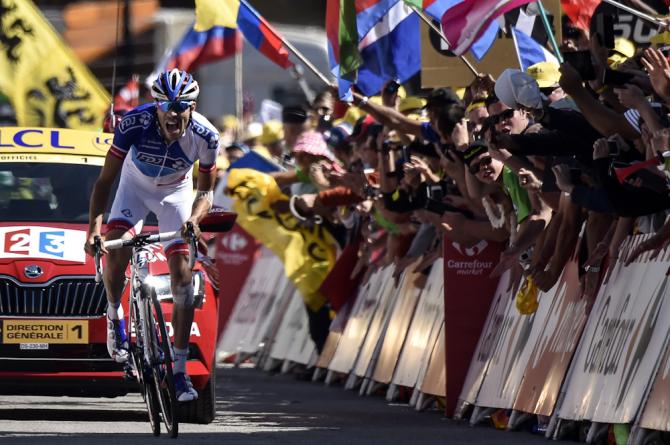10 conclusions from the 2015 Tour de France
Froome all-in at La Pierre-Saint-Martin, Sagan wins hearts, Greipel sprinter of the moment
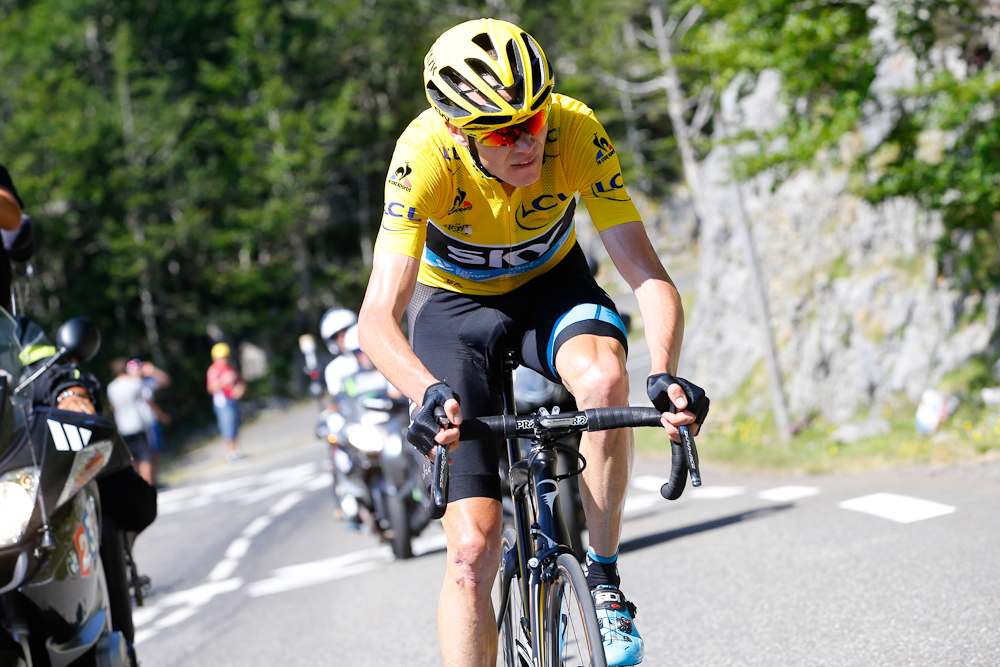
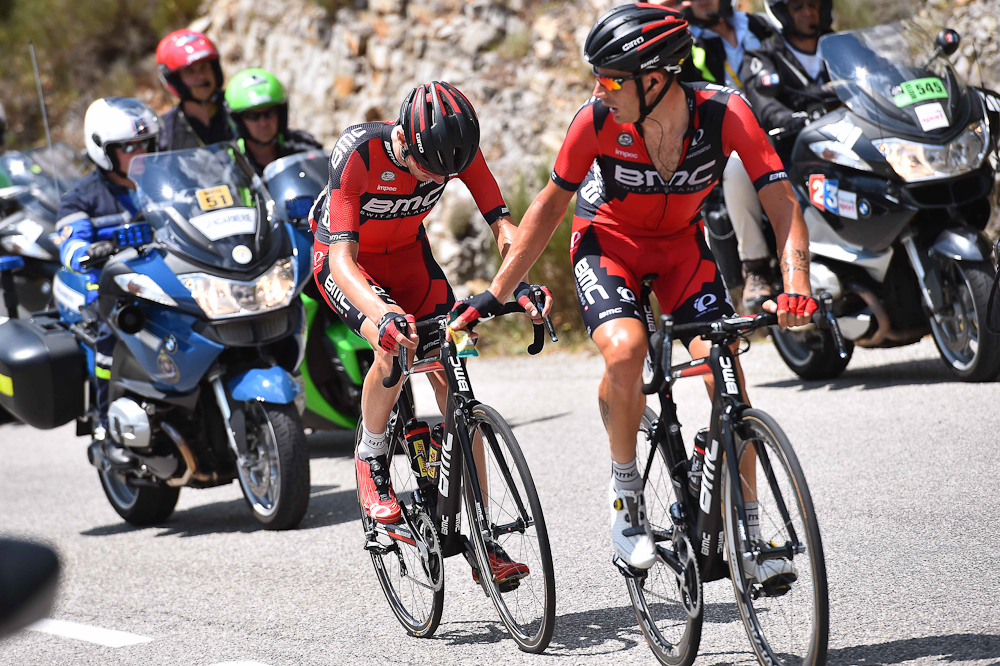
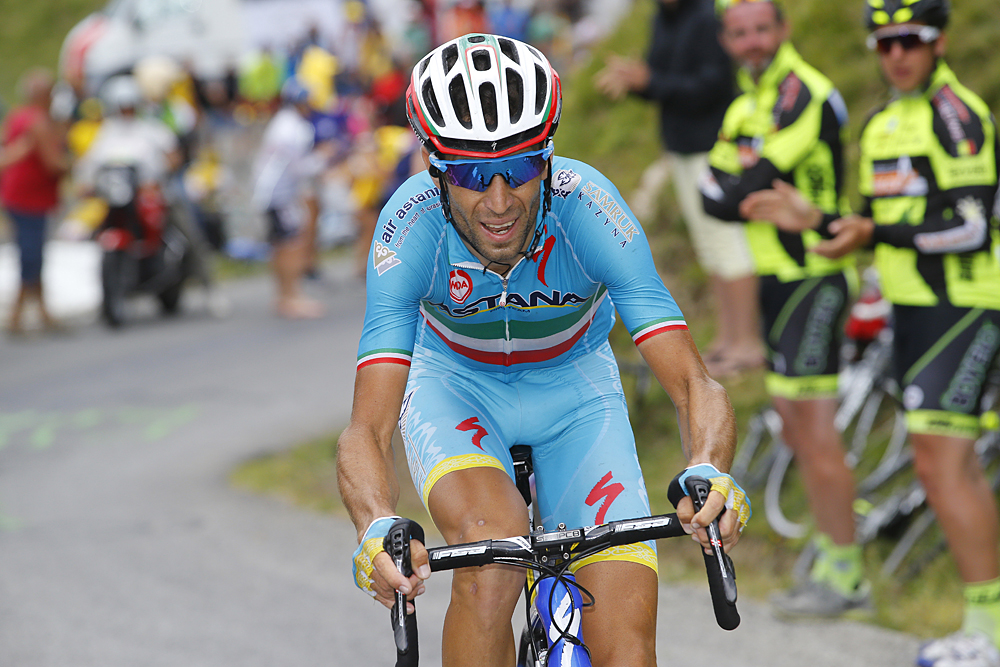
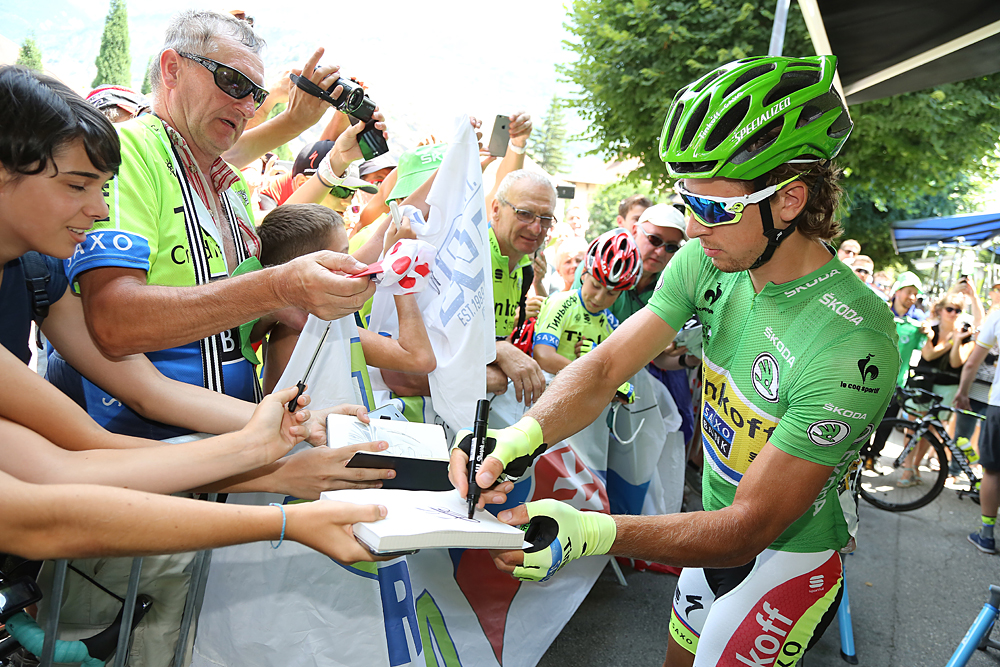
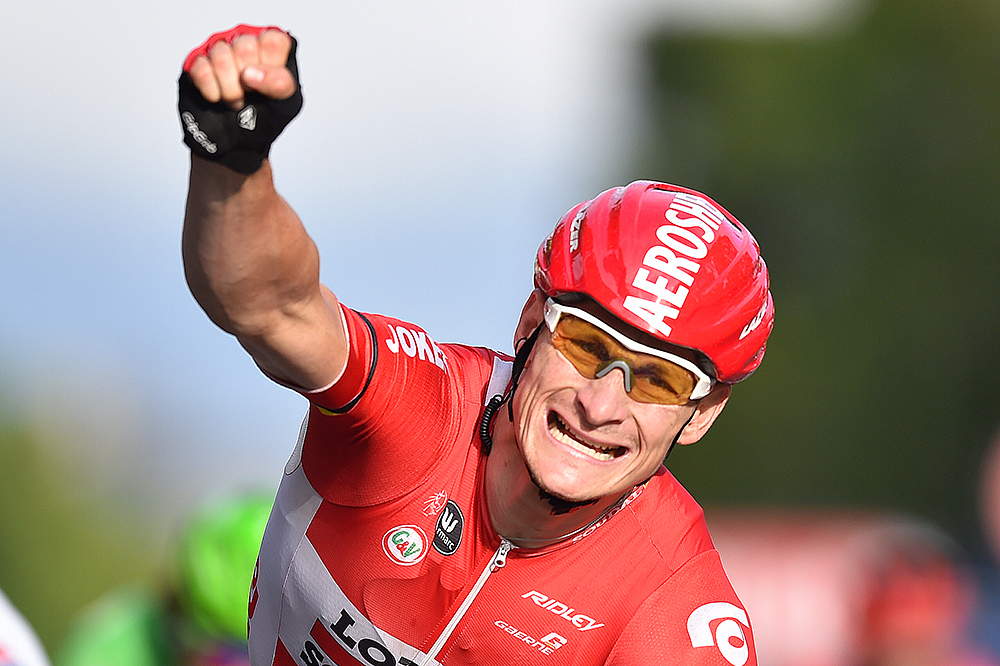
1. Froome won the Tour de France at La Pierre-Saint-Martin, not in the Netherlands
Hindsight is a wonderful thing. When Chris Froome’s final margin of victory was confirmed at 1:12, many were moved to claim that the Sky rider had effectively won the race on stage 2 in Zeeland, where Nairo Quintana (Movistar) incurred his single greatest loss of time of the entire Tour, conceding 1:28 after getting caught out in the crosswinds.
The figures add up, of course, but a three-week bike race cannot be reduced to a simple mathematical equation. Nothing ever happens in a vacuum at the Tour. Swings in morale and confidence can feel as decisive as the seconds won and lost. Context is everything.
Despite his later claims, Quintana would surely have settled before the Tour began to reach the end of a tense opening week in 9th place overall and just under two minutes off the yellow jersey. With his favoured terrain of the Pyrenees and Alps to come, Quintana was rightly billed as Froome’s principal challenger and a duel for the ages seemed in prospect.
The very first mountain of the race, however, would bring that illusion to an abrupt halt. Quintana’s Movistar squad made the running at the base of La Pierre-Saint-Martin on stage 10, confident that the Colombian was about to begin his comeback in earnest. What followed was a startling – and ultimately decisive – reversal.
Sky’s Richie Porte took over midway up the climb and set up Froome’s attack with 6.5 kilometres remaining. Only Quintana could follow the yellow jersey but he, too, would have to give best, distanced by Froome’s astounding cadence. By the summit, Quintana would lose 1:04 (plus a further 6 seconds in bonuses) to Froome, and to add insult to considerable injury, he would be caught and passed by Porte in the final kilometre.
The results sheet now had Quintana 3:09 down in third overall, and the psychological blow was greater still. Quintana had not ridden at all badly, but Froome and his team had apparently been on another planet.
Get The Leadout Newsletter
The latest race content, interviews, features, reviews and expert buying guides, direct to your inbox!
The effect was devastating. Quintana attacked out of duty rather than out of conviction at Plateau de Beille and seemed hesitant deep into the Alps, even when Froome was beginning to flag. By the time Quintana finally began his offensive on Froome’s yellow jersey in earnest, six kilometres from the top of La Toussuire (or two and a half mountains from Paris), he had already long since run out of road.
For their part, Sky will look back in satisfaction at a race that ran more or less according to their script. Keeping Froome out of trouble in week one was the minimum requirement and putting him into yellow a bonus, but their tactics hinged on La Pierre-Saint-Martin. Having built up a precious away goals lead there, they could play on the defensive all the way to Paris. (BR)
2. Controlling the message backfires for Sky and Froome
In the final three days, a bike race threatened to break out, but, as in 2013, much of Chris Froome’s tenure in the yellow jersey was overshadowed by questions regarding the credibility of his performances.
Sky manager Dave Brailsford will feel that the repetition of the same litany of suspicions – the curious spike in Froome’s performances in 2011, the startling cadence, the long history of doped Tour winners – simply demonstrates the impossibility of “proving a negative,” namely of proving that Froome is clean. An alternative view, however, is that the resurfacing of the same questions yet again is an indictment of Team Sky’s failure to engage with them seriously and openly the last time around.
Many pushed for the disclosure of Froome’s power data as a means of delivering on the team’s long-standing pledge of transparency. Sky’s eventual, limited release of some of Froome’s power data from the La Pierre-Saint-Martin stage did precious little to quell the debate, however, not least because the yellow jersey’s average power output of 5.78 watts/kg was lower than the 5.93 watts/kg already reported by Robert Gesink, who finished 1:33 down.
The vexed question of power data is only part of the battle, however, and Froome was probably correct when he noted wearily at Pra-Loup that “there are a lot of people out there who have made up their minds and, whatever information we release, that’s not going to change their opinions.”
Sky’s problem is perhaps not so much one of information, then, as of attitude. Throughout the Tour, the team looked to control the message rather than encouraging questions, creating something of a siege mentality that led to a tense atmosphere at so many of Froome’s post-stage press conferences.
As the race entered the Pyrenees, for instance, Sky briefed selected British newspapers with the emotive and unsubstantiated claim that Froome’s power data from Mont Ventoux in 2013 had been hacked, yet that afternoon Brailsford refused point blank to answer questions on the allegation.
Froome had the sympathy of all and sundry when he reported that he had been doused with urine by a spectator on the road to Mende on stage 14, but it ebbed away quickly when he sat down in his post-stage press conference and used the incident as a pretext to attack the media, blaming the actions of one man on the roadside on what he called “irresponsible reporting".
Sky and Froome would later apportion blame specifically to the French media (and Laurent Jalabert in particular), leading to some predictably jingoistic (mis)reporting of the situation in some sectors of the British press in the final week of the Tour, including from the BBC’s Newsnight programme.
In his press conferences, meanwhile, Froome developed the habit of picking up the microphone and giving a synopsis of his day before he was even asked a question. It’s possible that Froome, polite to a fault, was simply trying to helpful, but it nonetheless strengthened the impression of a team determined to control the message at every opportunity.
In trumpeting Sky’s transparency in 2013, Brailsford claimed that he and his team “welcomed the questions.” As this year’s Tour demonstrated, they sometimes have a funny way of showing it. (BR)
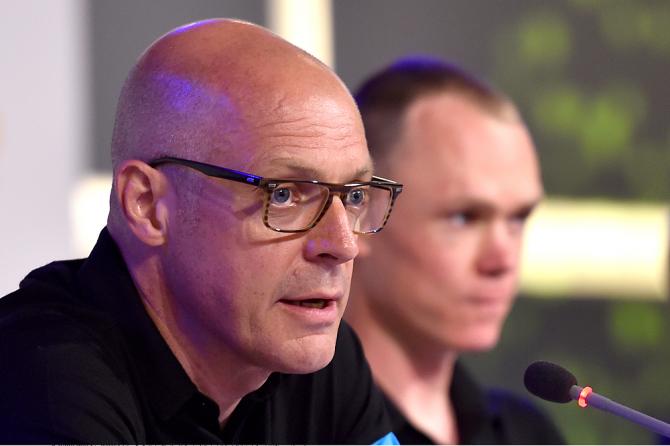
Photo: TDW Sport
3. A heartbreaking Tour for Van Garderen, but an encouraging one, too
On paper, this Tour de France looks depressingly similar to last year’s for Tejay van Garderen; tangible podium hopes were undone in the mountains on the day after the second rest day. However, the circumstances are markedly different and despite the disappointment being all the more intense, the American can hold his head high.
Whereas last year he endured, for whatever reason, an off day after the rest day and lost four minutes, this time it was illness that derailed his ambitions in much crueler circumstances in the early phases of stage 17 to Pra Loup. Van Garderen sat second on GC heading into the final stages in the Alps and while it was unlikely he’d be able to usurp Chris Froome, he was thought to possess the resilience, a characteristic borrowed from BMC’s former leader Cadel Evans, needed to hang onto a podium spot.
He was denied the opportunity to truly prove himself, and while he will wonder what might have been, he can take much heart from turning the Fab Four into a five-piece, or the Backstreet Boys, as he described it.
Next year’s Tour will surely not match this year’s in its preponderance of mountains and dearth of time trial kilometres, and once the disappointment has faded, van Garderen should approach it with considerable self-belief. (PF)
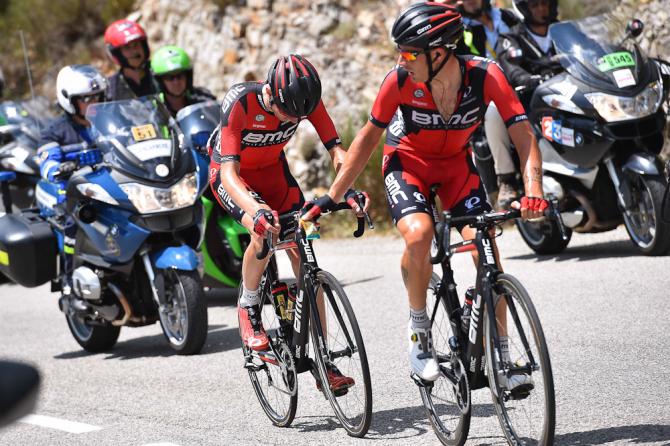
4. Movistar/Quintana pay for opening week losses
Hindsight is 20/20, as they say, but Movistar had to know that every second lost in the first week to Froome would matter, but that didn't help them in the critical early stages. While Quintana and Valverde limited their losses to Froome in the opening time trial, things quickly changed on one of the stages most feared by the GC men: the flat stage 2 along the blustery North Sea to one of the monuments to man's hubris in the face of nature - the island of Neeltje Jans.
A plaque at the dam at Neeltje Jans, which holds back the sea, reads, 'Here the tide is ruled by the wind, the moon, and us'. The wind decided to show just who was in control, and made an example of Movistar, blowing apart the peloton with more than 50km still to race. As Etixx-Quickstep drove the pace, Froome held fast and finished on the back of the group of stage winner André Greipel, while Quintana and Movistar languished at 1:28.
Though after the stage, the team seemed happy just to have survived and did not seem to consider the time loss so critical, but in retrospect, with just 1:12 between second place and Tour de France glory, they might change their views.
Another 11 seconds lost on the Mur de Huy was only insult to injury, especially considering that Movistar held Team Sky to just three seconds in the stage 9 team time trial. At the first rest day, Froome was already in the yellow jersey and Quintana almost two minutes behind and Valverde only slightly closer. Although Quintana would claw back 1:50 in the final two mountain stages, he could pinpoint stage 2 and 10, where he gave up 1:14 to Froome, as the points where he lost the Tour de France. (LW)
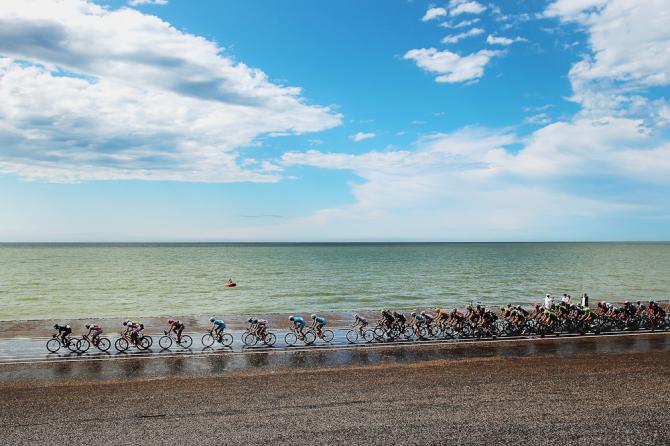
5. Nibali fights back but disappoints
Vincenzo Nibali fought back in the Alps to win the stage to La Toussuire and climb up to fourth overall in the final classification. His late show of pride and aggression was probably enough to save his Tour de France and avoid being sent to the Vuelta a España by Astana team manager Alexander Vinokourov, but the Sicilian left Paris with little to be happy about.
Before the race he was one of the big four contenders thanks to his dominant performance in 2014. 12 months on Nibali seems a shadow of the shark who devoured his rivals and won stages at ease.
In 2014 Nibali won in Sheffield and extended his overall lead on the cobbled stage. This year the early stages revealed Nibali’s lack of form and highlighted the lack of unity and dedication to the cause within the Astana team. The group of multi-nation mercenaries selected for the Tour showed little loyalty to Nibali and left him isolated in the echelons on the stage to Zeeland. Nibali knew that he would struggle to regain the lost time and his morale only seem to lift when he attacked at the moment of Froome's brief mechanical problem on stage 19. Sadly their exchange of strong words was the only moment they clashed, with Froome dominating on the road.
It has been suggested that Nibali does not like to train at home in Lugano or even during camps on Teide in Tenerife. He seemed to find some form as the Tour de France went on and that perhaps indicates he may be better riding the Giro d’Italia before the Tour in 2016. (SF)
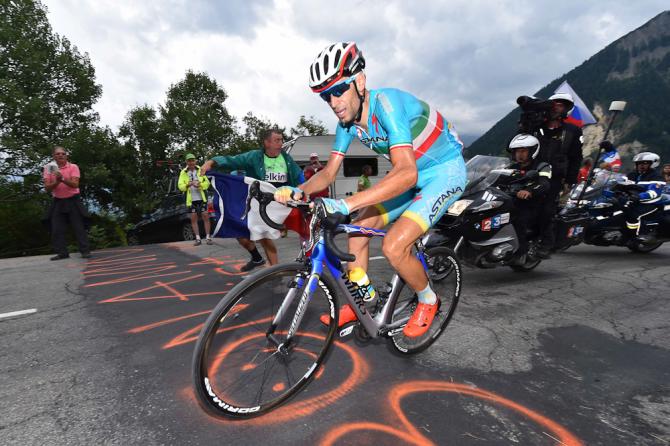
6. Sagan wins hearts if not stages
Peter Sagan featured in Cyclingnews’ conclusions piece from last year’s Tour de France and one year on, much of it rings equally true.
Sagan has once again dominated the points classification and showcased his extraordinary all-round prowess, yet has failed to come away with a stage victory. The classification was recalibrated to afford more weight to stage wins and Sagan’s victory margin over four-time stage winner André Greipel – 432 points to 366 – speaks volumes about his consistency and ability to mix it over all sorts of parcours. However, his five second places and 10 top-10s have confirmed him as the nearly man of the Tour.
What is more, perceptions of the Slovak seem to have shifted. When he took the 2012 Tour by storm, people thought it was the start of a reign of dominance. As the predicted big Classics wins failed to materialse and the Tour successes dried up, there was a feeling of frustration at potential not being fulfilled, at talent not getting the results it justified.
This July, though, we seem to have embraced Sagan for what he is, admittedly helped by his free-spirited endeavours and offbeat interviews, while his string of near misses have, in a way, added to the myth of the man.
Even Oleg Tinkov, whose dissatisfaction with his multimillion-euro acquisition has been well documented this year, ended up expressing his admiration for Sagan’s abilities over frustration at his perceived failures.
Yes, he did tweet “I fucking crashed my Bang&Olufsen TV set” after Sagan’s second place in Gap, but he also said: “he is by far, for me, the strongest rider in this Tour de France. I know that somebody in Britain thinks Christopher Froome is the strongest, but that's not true. It's Peter Sagan, and those who don't admit that don't know cycling."
In a way, he’s right. Sagan’s remarkable talents may not be adequately reflected in the record books of posterity but those who know cycling will not forget the way he lit up this Tour. (PF)
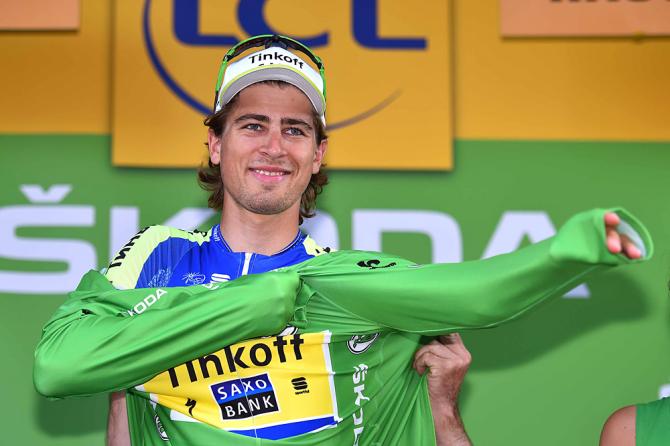
7. Greipel the sprinter of the moment
In 2011 it was Mark Cavendish, in 2013 and 2014 it was Marcel Kittel, but the dominant sprinter of this year's Tour de France was hands down André Greipel. The Lotto Soudal rider equalled the quadruple stage wins of Kittel and Cavendish in previous years, bringing his career tally of Tour stages to 10 with an emphatic come-from-behind win on the Champs-Elysées.
In the absence of Kittel, who wasn't selected for Giant-Alpecin's Tour team after an illness-plagued early season, Greipel proved to be not only the strongest and the quickest, but the one with the knack of consistently timing his sprint to perfection. The German made a mistake just once on stage 7 to Fougères, where he went a bit too early into the headwind and was overtaken by Cavendish before the line.
To achieve each stage victory, Greipel had to combine both sprinting prowess, timing and tactics. His win on stage 2 came from a much-reduced peloton that split en route to Neeltje Jans. He and his team rode attentively to win over Peter Sagan, with Cavendish trailing in for fourth having kicked too early.
On stage 5 to Amiens, no sprinter had an organised lead-out, and Greipel freelanced his way to victory in a straight-up power match over Sagan, Cavendish and Alexander Kristoff. On stage 15, Cavendish didn't make it over the climbs, but Greipel did and handily outkicked John Degenkolb to win. But it was his win on the final stage that cemented his place in history: although Kristoff had the last lead-out man, the Katusha rider faded in the final meters, but Greipel still had plenty of punch left. The German muscled past to snatch the victory while Kristoff faded to third behind Bryan Coquard. (LW)
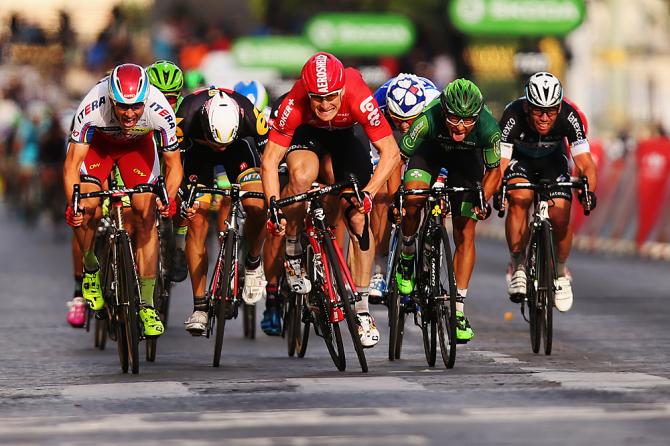
8. Giro-Tour double mystique enhanced by Contador coming up short
In the end, it was an anticlimax. One of the most captivating narratives this season has been Alberto Contador’s daring attempt to pull off the Giro d’Italia-Tour de France double – a feat only achieved by nine men and not since Marco Pantani in 1998.
Excitement levels rose when the Spaniard ticked off the Giro in May in commanding fashion and there was still hushed anticipation when he came through the opening week of the Tour a minute down on Froome but ahead of the other members of the Fab Four.
But it quickly became apparent that Contador simply did not have the legs and, after losing considerable time on the first mountain stage in the Pyrenees, attacks in the Alps were based on heart rather than strength. As feared, the Giro had taken its toll and Contador himself admitted he’d been pushed too far by an aggressive Astana team and a demanding final week. Seeing the swashbuckling Spaniard so hamstrung was a strange and slightly sorry sight.
Yet, winning the Giro and getting a top-5 at the Tour is still a remarkable achievement and the fact that Contador sacrificed his chances in both races for a shot at greater glory warrants our respect. Meanwhile, our reverence for the Giro-Tour double has only been bolstered by the greatest Grand Tour rider of a generation falling short. (PF)
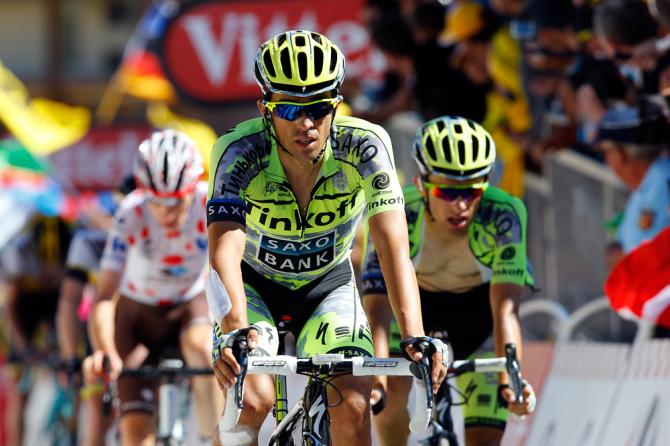
9. This year's route gave us exciting racing but not a classic
Race director Christian Prudhomme and his technical director Thierry Gouvenou no doubt shared a glass of champagne to celebrate the conclusion of yet another hugely successful Tour de France. They deserve it after three weeks of intense racing with the beauty of France again offering a stunning backdrop to the action.
The innovation brought in by Gouvenou has shaken up the Tour de France, made it more unpredictable and so much more entertaining. He revealed in an interview during the race that he even studies local riders’ Strava data to find secret climbs and roads near stage finish towns. ASO seems to have reacted to the innovation of the Giro d’Italia and found ways of allowing the huge technical and organisational caravan to finish atop the highest mountains and cover the narrowest of roads.
In Paris Prudhomme claimed that this year’s route proved that the first week of the Tour de France is as important as the third week. However he is also probably aware that the intensity of the first week left the peloton tired and so perhaps dulled the racing in the Pyrenees and Alps. The mountain stages were dominated by breakaways and solo attacks, as Froome and Team Sky controlled their closest rivals and let other riders save their race with a day of glory. It was entertaining but the 2015 Tour de France will probably not go down in history as a special race. Hopefully ASO will study the flow of this year’s race in detail and accept that back-to-back mountain stages are no guarantee of a fight for the yellow jersey.
We know that the 2016 Tour de France will start in the Manche region of Northern France with Mont-Saint-Michel and the beaches of the channel hosting the opening stages. For everything else Prudhomme asked us to wait until October 20, when the full 2016 race route will be unveiled in Paris. (SF)
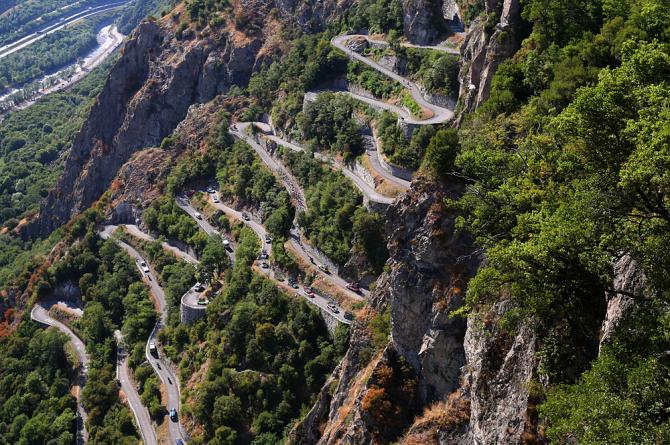
10. French resistance, rather than revolution
After a 30-year wait for a first home winner of the Tour since Bernard Hinault in 1985, hopes for a resurgence in French cycling had never been higher than this year.
With Jean-Christophe Péraud and Thibaut Pinot second and third on the podium last year, and Romain Bardet sixth, there was genuine excitement about what might be achieved this time around, especially from the latter two, aged 25 and 24 respectively.
By the first rest day, however, expectations had been well and truly dashed and GC hopes had gone out of the window. Pinot lost his head on the cobbled stage 4 and leaked time at other junctures to find himself over eight minutes down, while Bardet and Péraud were minutes back, too. Add in the fact that Nacer Bouhanni, who had been in roaring form ahead of the Tour, crashed out on stage 5, and things were looking decidedly bleak for the home faithful, despite a stage win from Alexis Vuillermoz.
However, the Alpine conclusion to the Tour has put an entirely different complexion on things. Pinot claimed a huge penultimate day win atop Alpe d’Huez, where Bardet wore the polka dot jersey thanks to his own solo victory two days earlier. Meanwhile, 23-year-old Warren Barguil hung admirably with the top GC contenders in the mountains and, though he blew up on stage 19 and lost a stack of time, he more than confirmed the potential he showed in the Vuelta a España the last two years. Pierre Rolland also produced spirited displays in the Alps and, along with Bardet, moved into the top 10 on GC as Barguil fell out.
The revolution that a home Tour winner would represent didn't come to fruition this time, but after early setbacks there was a spirited resistance from the Frenchmen and ample evidence to back up the notion that good times lie just around the corner. (PF)
